|
|
|
Книги John Ayto

|
This in-depth exploration of the English language covers every nuance and curiosity of this constantly evolving linguistic pastiche. It is estimated that every year 800 neologisms are added to the English language, and include acronyms (NIMBY, Not In My Backyard), blended words (motel), and those taken from foreign languages (savoir-faire). Laid out in an a-to-z format with detailed cross-references and written to appeal equally to students, etymologists, and nonnative speakers, this historical guide is an invaluable resource for this truly global lingua franca. |

|
- Thematically arranged by chapter for easy browsing — Words are arranged chronologically within themes to show how the language has changed — Contains word origins, illustrative examples from literature, and an easy-to-use A-Z index — Includes over 10,000 slang words and phrases — By the author of the Oxford Dictionary of Modern Slang and the Oxford Dictionary of Rhyming Slang Our longstanding love affair with the undignified bits of our language — the unguarded vocabulary of conversation, the quirky slang of in-groups, the colourful outbursts of lexis in extremis — has assured us a continuing tradition of collecting such words together in dictionaries. Rather than using the alphabetical format favoured by most of these, however, the Oxford Dictionary of Slang takes in turn each area of life and each aspect of the world that generates significant amounts of slang, and builds up a picture of how our off-guard speech has changed down the years. There is also a full alphabetical index. Containing over 10,000 words and phrases, this is the ideal reference for those interested in the more quirky and unofficial words used in the English language. Including surprisingly old words such as booze and guzzle to the most up-to-date words like humongous and lunchbox, this fascinating book is sure to provide a stonking good read for all. |

|
Did you know that 'flavour of the month' originated in a marketing campaign in American ice-cream parlours in the 1940s, when a particular flavour would be specially promoted for a month at a time? And did you know that 'off the cuff' refers to the rather messy practice of writing impromptu notes on one's shirt cuff before speaking in public? These and many more idioms are explained and put into context in this third edition of the Oxford Dictionary of English Idioms. The volume takes a fresh look at the idiomatic phrases and sayings that make English the rich and intriguing language that it is. This major new edition contains entries for over 6,000 idioms, including 700 entirely new entries, based on Oxford's language monitoring and the ongoing third edition of the Oxford English Dictionary. These include a range of recently established idioms such as 'the elephant in the corner', 'go figure', 'like a rat up a drainpipe', 'sex on legs', 'step up to the plate', 'too posh to push', 'a walk in the park', 'win ugly'. This edition also features a greatly increased number of cross-references, making it ideal for quick reference. Many entries include additional features which give more detailed background on the idiom in question. For example, did you know that 'taken aback' was adopted from nautical terminology that described a ship unable to move forward because of a strong headwind pressing its sails back against the mast? Anyone interested in the colourful side of the English language will get hours of fun browsing from this fascinating and informative volume. |

|
Drawing on the unique resources of the Oxford English Dictionary and offering coverage of over 6,000 slang words and expressions from the Cockney 'abaht' to the American term 'zowie', this is the most authoritative dictionary of slang from the 20th and 21st centuries. The Oxford Dictionary of Modern Slang is a fascinating and entertaining collection, packed with illustrative quotations and providing full details of origins and dates of first printed use. The text contains expressions from around the English-speaking world such as 'dork' and 'cockamamie' (North America) and 'giggle-house' and 'Jimmy Woodser' (Australia). As well as the A-Z listing of terms, the book contains a comprehensive thematic index, enabling users to home in on particular areas of interest, such as the body, food and drink, and human behaviour. Full of surprises, this is an essential read for word lovers and anyone with an interest in language. |
|